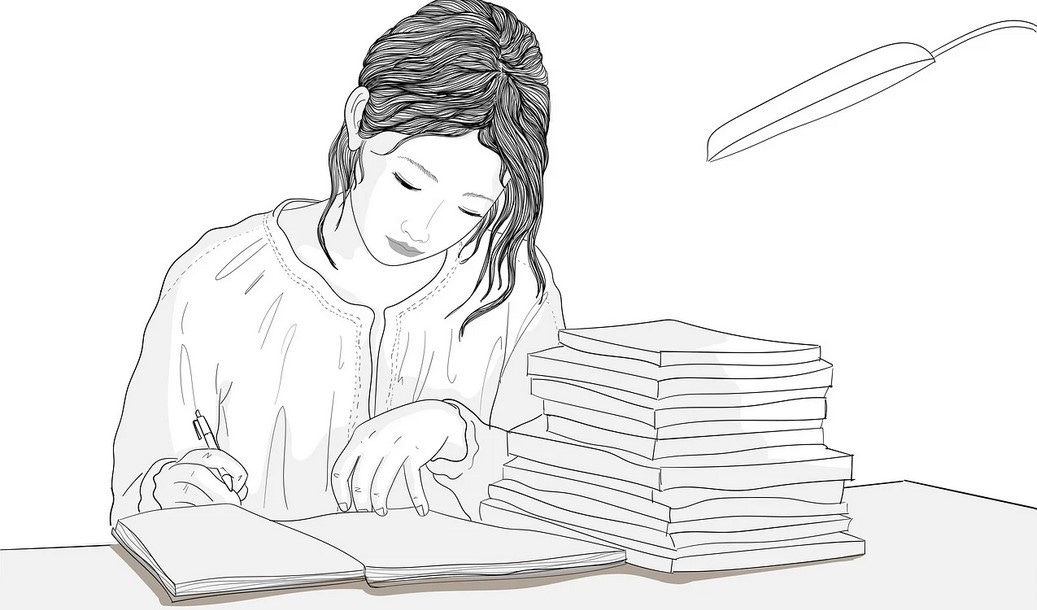In this episode, I cover how, when we are chronically stressed or in survival mode, we lose connection with our bodies. This creates many vicious circles, because, without signals from our body, we stop even being able to feel that we are stressed. I will use the build-up to exams as an illustrative example.
The woman that recorded these videos and interviewed me, is a teacher in the local high school. You can say it is her curiosity that is the basis of these videos. She has noticed the latest years, that her students have started to get a tremor or freeze before or in exam situations. She wanted to hear my interpretation of that. And yes, that is young people’s signs of extreme stress - going into their instincts fight, flight, and freeze - maybe building a pattern for their coming reactions to stress - with the risk of getting a diagnosis +40 years later.
Transcript of Video
(Lightly edited to improve the clarity of the point).
What happens if you are in freeze and have been there for a while is that you lose contact with your body.
So, if you get a symptom [such as a tremor] you don’t connect it to the current situation you are in. You can just see something is going wrong with your hand. You don’t connect that it's because you have been under big pressure recently.
So the problem with not being connected to your body is that you can only be “rational”. So you can think about what is going on, but you cannot feel what's going on. It's so important that you have a connection between body and mind, because only then you can feel if you are hungry and thirsty, and you can feel if the situation you are in right now is good for you or not.
So for example young people that are going to sit an exam in high school. They can work up a big constant pressure [over a period of weeks], because they need the marks to be high so they can go to university, or they need to impress their parents or their friends or whatever. (In Denmark, it is a new phenomenon for ambitious girls to be very stressed).
And they can pressure themselves so much that their body goes into this fight, flight, and freeze mode all the time. And then they lose the connection to the body.
And why is that important? It's important because if there is a danger, in survival mode, your body must not be disturbed by hunger, you must not be disturbed from you sitting in a bad posture. You should just run from the tiger, fight with the tiger, or freeze behind a tree and let no signs of life or emotions leave you. So in freeze even if it's an uncomfortable body position you have placed yourself, in you must just stay there until the danger is away again. So to make that happen the body and mind are separated.
And that's why you are not warned of the effects of chronic stress because maybe in an exam build-up situation, you should go to your teacher and say: hey I'm so afraid here. Can you help me? Or, you should go to your friend or visit a professional, that can help you.
So when chronically stressed, you may not even be aware that you are this fearful, because you do not get any warnings from your body since that's the whole idea about being in fight, flight, and freeze - that these two things [mind and body] are not cooperating.
It can happen, that when students end up sitting at an exam, even teachers can see what's going on here: that there's no connection between mind and body, that they are freezing, that they are having tremors.
It is a big problem, and it's like most students, if asked, will say that I'm not stressed at all, because they are disconnected from the signals from their own body. Well, how do you know what calm feels like when you have never been into another person's body to compare?
How should you be able to know if your state is calm or not if all your life has been stressed, so you do not know any difference? For example, many people with Parkinson’s who are stuck in the freeze response will consider themselves to be calm and not a stressful person, because they don’t even realize they are shut down.
But when people have started this healing journey to become better and more relaxed, then sooner or later they will come and say “now I know what it means to be calm”. And they can even say it several times because they keep reaching a new level of calm that they have never experienced before.
News
My fellow substacker,
of , and I, have created a new subscription member's area, for those interested in healing and becoming healthier based on these ideas:Students take a ride in a truck after the last exam, visiting all students from their class, honking, singing, and partying (the Danish flag is used for most celebrations)





